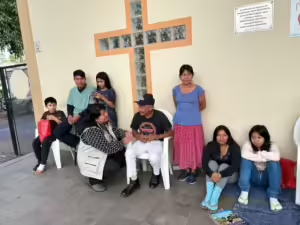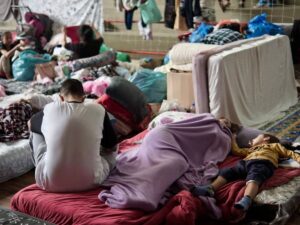During humanitarian crises, as experienced in Rio Grande do Sul, minority groups and communities in situations of social vulnerability tend to be impacted more severely and enduringly.
In this scenario, it becomes imperative to shed light on the fact that more than 80 indigenous communities were affected by the floods in southern Brazil. Despite representing a considerable portion of the state’s population, many media outlets ignore their needs in the face of such calamity.
Even though they are the most affected by climate change and disasters, indigenous peoples constantly suffer from state negligence, which, in turn, stems from the absence of indigenous and riverine lawmakers, creating a gap in legislative projects aimed at their needs. Thus, we can also attribute the magnitude of the current crisis to the lack of interest from political representatives in investing in or developing laws aimed at preventing and mitigating the effects of climate-related disasters.

Similarly, women victims of the intense rainfalls in Rio Grande do Sul have been suffering from what has been described as “a tragedy within another tragedy.” The term, coined by journalist Ana Pimentel in her brilliant article for Le Monde Diplomatique Brazil, reflects the increasing number of sexual violence cases within the shelters where displaced people are currently housed.
In addition to cases of harassment and assault, contemporary sexism manifests itself through the unequal distribution of tasks between individuals of male and female genders. While women are overloaded with caregiving and maintenance tasks in temporary shelters, men do not exhibit the same contribution since many of these functions, such as food preparation, cleaning, and caring for family members, are not imposed as expectations on them.

Part of the reason behind these phenomena can be attributed to pre-existing social inequalities that actively contribute to the oppression and marginalization of individuals. Factors that highlight the fragility of our democracy, which allows for the existence of immeasurable social disparities and the perpetuation of structural violence against underrepresented communities.
Therefore, the horrors experienced in Rio Grande do Sul exemplify the need for greater inclusion in governmental organizations as well as discussions about climate and social awareness.








